Mentoring-Program
BR50 and the international executive search firm Perrett Laver have joined forces to develop a cross-sectoral mentoring program that addresses female scientists and science managers at BR50 institutions, who are eager to reach a leadership position within their own or other sectors, such as private, public service/government, and the non-profit sector. 14 top talents (Mentees) have been selected for the pilot phase, all of whom are diverse in their disciplines and professional backgrounds. The 9-month long program starts in October 2023 and offers a wide range of workshops, mentorships and networking events with other diverse and inspiring (female) leaders. This will allow our mentees to grow professionally and to serve as a source of inspiration and support for each other. We hope that through the networking and joint professional growth opportunities offered, our mentees will accompany each other on their various career paths for years to come.
Constanze Bickelmann (BBAW)
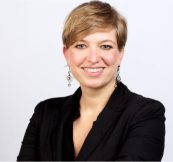
I am an evolutionary biologist by training and have over a decade of research experience at the interface of paleontology and molecular developmental biology. After having spent various time during my research career outside of Germany, I settled to Berlin in 2012: performing research at the Museum für Naturkunde and lecturing at Humboldt University.
In 2019, I shifted to a career in science management. I held positions as (EU) Research Advisor and as Advisor for International Affairs, both at the German Institute for Human Nutrition Potsdam. Currently, I am Academic Coordinator at the Berlin-Brandenburg Academy of Sciences and Humanities. Here, I coordinate a group of researchers on the topic Nutrition, Health and Prevention, initiate and organise scientific and public events, network with various stakeholders in politics and science, and publish discussed outcomes.
Besides, I am professionally and voluntarily interested in and committed to gender equity and diversity in science.
Marta Cipinska (MDC)
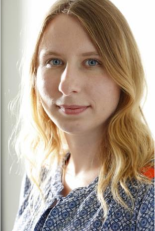
I obtained my bachelor’s and master’s degrees from universities in Poland. As a student, I gained my first international experience, participating in internships in Germany and England in the framework of IAESTE program. I was also an active member of IAESTE – leading a local team responsible for arranging internship offers.
I continued my education in Germany by joining International PhD Program (IPP) at Institute of Molecular Biology in Mainz. During my doctoral degree I was also a student’s representative - organizing surveys, buddy program and career events.
After my PhD, I worked as scientific coordinator of IMPRS at MPI of Biochemistry in Munich. I was responsible for students’ recruitment, marketing, training activities and events organization.
After 3.5 years, I moved to Berlin and at the moment, I work as a coordinator of graduate school involved in exchange program, educational activities and recruitment.
Claudia Crocini (MDC)
I'm a curious and resourceful cardiovascular scientist with international work experience and excellent academic track-record. I received 1.8 mln € to lead an independent junior research group focused on sex differences and heart biology. In addition, I was awarded three highly competitive fellowships, including a Marie Curie fellowship, and I'm a skilled and effective communicator, having presented at 30+ international conferences and authoring 25+ peer-reviewed publications. I have organized 15+ public outreach and networking initiatives to facilitate collaborations between industries and scientists. I advocate for increasing recognition of postdocs and junior scientists in academia. My professional goal is to support strategic positioning of scientific missions to drive innovation and discovery in science.
Maria Einhorn (MPIB)
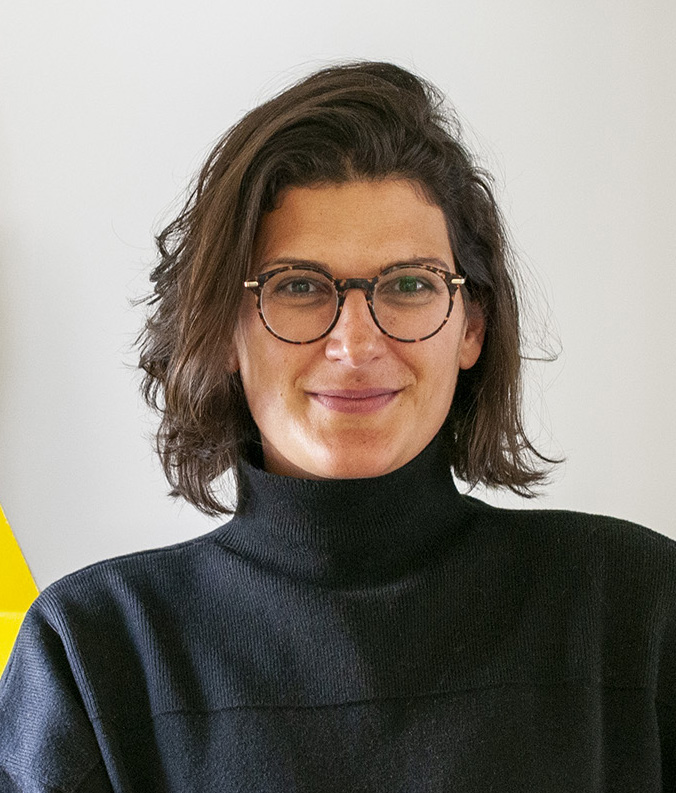
I am an accomplished professional with expertise in communication, PR, and project management, with a strong foundation in communication design. Currently, I serve as the Head of PR at the Max-Planck Institute for Human Development Berlin, overseeing press relations, internal and external communications, strategic positioning, and employer branding. Additionally, I am the Equal Opportunity Officer of the Institute.
Before stepping into science communication, I worked in the creative agencies sector. As Director of Project Design and Senior Communications Consultant at SP Design, a leading German creative agency, I was, among other things, responsible for AUDI's financial and sustainability communication projects and expanded the agency's editorial network and expertise. At TEMPUS CORPORATE GmbH (now ZEIT X), I gained extensive
experience in content marketing, editorial work, and conceptional design of print and digital products for various clients.
I hold a Diploma in Visual Communication from Bauhaus University Weimar, where I also have lectured and worked in the Communication department.
Annett Gräfe-Geusch (DeZIM)

I'm a postdoctoral researcher at the German Center for Integration and Migration Research (DeZIM e.V.). My research focuses on (migration-driven) diversity, discrimination, racism, and organizational change. I'm currently working on a mixed methods research project examining diversification within German public administration. In 2021 I recived 2021 Elisabeth Sherman Swing Award of the Comparative and International Education Society and the Best Paper Award of the Violence and Radicalization Research Network of the Council for European Studies. My dissertation on diversity in Berlin's ethics teaching received the NYU Steinhardt’s Outstanding Dissertation Award 2020 honorable mention. I have published on Global Citizenship Education and with Cynthia Miller-Idriss on Far-Right Youth Identity. My latest publication with Cynthia Miller-Idriss is entitled “Fitting in,
Standing Out: Far-Right Youth Style and Commercialization in Germany”. I have also co-authored the report “Wie kommt Vielfalt ins Amt?” with Hannah Arnu and Sabrina Zajak.
Marlen Kruse (PTB)

After my Abitur in Schleswig Holstein in 2009, I moved to Hamburg and went to the performing arts school for three years. In 2012, I started studying physics at the University of Hamburg, where I completed my B.Sc. in physics in 2015. For my master, I moved to Berlin for a double master program of the Free University and the École Polytechnique. I spent the first year in Berlin and the second year in Palaiseau, close to Paris. I finished my M.Sc.in 2017 with a thesis in the field of biophysics. Afterwards, I started my doctoral thesis at the Fraunhofer IZI-BB in Potsdam on binding interactions of biomolecules (especially viruses), which I completed in 2022. Subsequently, I started a postdoctoral position at the Physikalisch-Technische Bundesanstalt in Berlin in the field of medical physics.
Mairi McGrath (DRFZ)

I'm a scientific Coordinator at the German Rheumatism Research Centre Berlin (DRFZ), a Leibniz Institute.
I have a BSc (Hons) and PhD in Immunology, both from the University of Glasgow, Scotland. As my PhD programme was focused on studying rheumatic diseases, I got to know of the German Rheumatism Research Centre in Berlin, where I came to do a postdoc in 2011. After this postdoc period, I decided that I did not want to pursue an academic tenure-track position and instead switched gears to become a scientific coordinator.
My position, working for the institute’s director, has been extremely varied over the last five years and has involved coordinating international networks, meetings and editing scientific texts. I have also held the position of EFIS (European Federation of Immunological Societies) President’s Office since 2019, where I coordinate work for the President as well as being responsible for external communications.
Katrina Meyer (MPI-MolGen)

I studied biophysics at Humboldt-University in Berlin from 2006 - 2012, which included an extended ERASMUS stay in Padua, Italy, where I completed my Bachelor’s thesis. Following that, I pursued my Ph.D. at the Max Delbrück Center for Molecular Medicine, Berlin. Studying the impact of disease mutations on disordered protein regions, using mass spectrometry. Shortly before completing my Ph.D., I participated in the JSPS summer program in Kyoto, Japan, before moving to Zurich, Switzerland for my first postdoc. During this time, I gained experience in high-content imaging and regulation of biomolecular condensates. I am currently pursuing my second postdoc at the MPI for molecular genetics, Berlin, combining skills from Ph.D. and previous postdoc.
Anita Ragyanszki (ZiB)
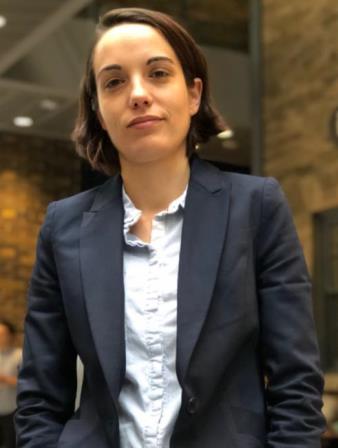
I am an HPC research scientist at Zuse Institute Berlin. I obtained my doctoral degree in theoretical and computational chemistry, specifically working on force field development and applying theoretical chemistry techniques to determine the potential energy surfaces of biomolecules. As such, I have an in-depth understanding of both chemical and biological data across a wide range of data types. Following my doctoral work, I have built my career for the past five years as a Postdoctoral Fellow in multiple research groups internationally, where I have further developed my skills in theoretical chemistry and machine learning, applying my skills to the fields of transition state theory, solid-state physics, and astrochemistry. Furthermore, I have had opportunities to significantly develop my interpersonal and communication skills through my work as a university lecturer, conference organizer, as well as a reviewer in six scientific journals.
Nora Ratzmann (DeZIM)
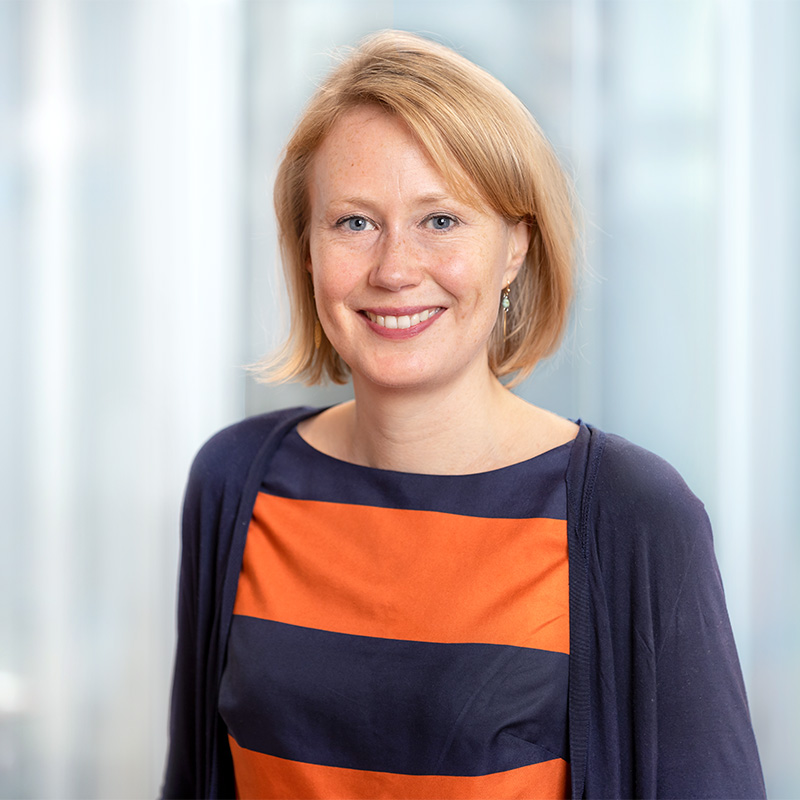
I'm a Research Project Leader at DeZIM Institute, Berlin (German Centre for Integration and Migration Research), with a focus on migration governance, social protection, social rights, discrimination and EU freedom of movement. Currently I lead several qualitative research projects on Ukrainian refugees' integration in Germany. After studying social sciences (with a focus on European studies, social policy and international relations) at the universities of Osnabrück, Montréal, Oxford and the London School of Economics, I initially worked on migration and social policy issues at the policy research institute RAND Europe, the UNESCO-affiliated International Institute for Educational Planning (IIEP) and the German development cooperation GIZ. From 2015 to 2019, my doctoral research at the LSE's International Institute for Inequality investigated barriers to accessing German basic social security for EU citizens from the perspectives of internal migration control and institutional discrimination.
Franziska Ringleb (FMP)

After studying biophysics at the Humboldt University of Berlin (2004-2009), I carried out research related to energy conversion for several years: during my diploma thesis on electrolytic hydrogen production (Free University of Berlin, 2009), during my doctorate on basic mechanisms of catalysis (Fritz Haber Institute of the Max Planck Society, 2010-2013) and during my postdoc on optimizing solar cells (Leibniz-Institut für Kristallzüchtung, 2014-2016). I then moved on to the scientific coordination of an institute for basic medical research (Leibniz-Forschungsinstitut für Molekulare Pharmakologie). Here, I support the directors in a wide range of matters, initially with a focus on the acquisition of third-party funding for research projects and more recently on sustainability and reconciliation. In particular regarding the latter topics, I often carry out conceptual work and coordinate cross-sectional and participatory processes.
Esmeralda Valiente (PTB)

I completed my PhD in Molecular Microbiology at the University of Valencia, Spain in 2008. I then joined the London School of Hygiene and Tropical Medicine (LSHTM) in the UK as a Postdoctoral Research Fellow in the Department of Pathogen Molecular Biology, and in 2013 I was awarded a Marie Curie Intra-European Career Development Fellowship at LSHTM. After one year, I was promoted to Assistant Professor in Molecular Microbiology at LSHTM. In 2021, given the importance of preparing for future pandemics, a new working group was established at the Physikalisch-Technische Bundesanstalt (PTB) (also named as the National Metrology Institute of Germany) and I accepted the team leader position in this group. The main aim of this team is to develop accurate molecular methods based on the digital PCR for human pathogen and early cancer detection. PTB, as part of a metrology consortium, has been recently awarded an EU project "GenomeMET", where my team will lead a work package about developing routes to produce new reference materials to support the early detection of cancer.
Janina Wellmann (MPIWG)

I'm a Research Scholar at the Max Planck Institute for the History of Science in Berlin. I hold a joint PhD (cotutelle de thèse) from the Ecole des Hautes Etudes en Sciences Sociales in Paris and TU Berlin where I also obtained my Habilitation. I was Visiting Professor at Dartmouth College in spring 2022 and spent the academic year 2017–18 as a fellow at the Harvard Radcliffe Institute and at the Wissenschaftskolleg zu Berlin in 2013–14. Recently, I have become an editor of the German Journal NTM. I'm the author of the upcoming Biological Motion. A History of Life. New York: Zone Books (in press) and The Form of Becoming. Embryology and the Epistemology of Rhythm, 1760–1830. New York: Zone Books 2017, which was awarded the Prize for Outstanding Junior Scholars by the Berlin-Brandenburg Academy of Sciences and the Prize Geisteswissenschaften International by the Börsenverein des Deutschen Buchhandels.
Woo Ri Chae (BIH)
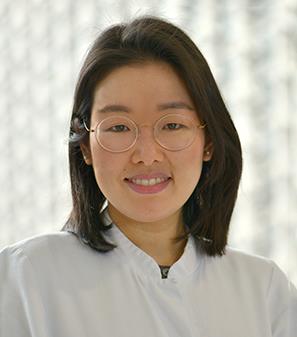
I am a clinician scientist with clinical expertise in affective disorders and extensive research experience with psychopharmacological studies, specifically in depression. My scientific approach is interdisciplinary and multidimensional. So far, I have not only worked with various cognitive and affective experimental paradigms, but also, I am a trained clinical trialist with an active role in an ongoing multicenter clinical trial on depression. Moreover, I have published several epidemiological studies in cooperation with the Robert Koch Institute and continue to collaborate with national and international research institutions to analyze biological and social determinants of depression and medical comorbidities using national and European data. My previous postdoctoral work focused on the biobehavioral pathways that drive depression and the link between depression and comorbid metabolic diseases. More recently, I have extended the scope of my research towards to role of immune mechanisms leading to specific depressive symptoms. My long-term goal is to translate those findings from basic neuroscience and epidemiology to the clinic to ultimately improve the prevention and treatment of depression and depression-related medical comorbidities.
May 3rd 2024: 6. Workshop - Science Park Adlershof & Executive Search
For the last workshop, the mentees visited the Science and Technology Park Adlershof. A guided tour showed how research, innovation and business in Adlershof interact. They also learned what is important when applying for leading positions and were able to gain an insight into the field of executive search and in particular to the work of Perrett Laver.
As a grand finale, the mentees received their certificates and were able to round off the mentoring program together with their mentors.
We would like to thank IGAFA e.V. for hosting the closing event.
March 15th 2024: 5. Workshop - Change Management
This workshop dealt with the highly relevant subject of change management. It considered aspects of personal change as well as the working environment and how change processes are implemented in teams and at an institutional level.
Hilke Bülau guided the mentees through the all-day workshop. The Bertelsmann Stiftung Berlin and the Liz Mohn Stiftung supported the workshop by providing the location.
Feburary 16th 2024: 4. Workshop - Cross-sectoral Career Paths
This workshop served as an inspiration for different career paths and as networking event. Twelve inspiring personalities from various sectors (science, science management, science policy, industry and the StartUp scene) were invited to present themselves, their professional careers and their current positions. The mentees were able to interact with the guests, ask questions and make contacts. This was another opportunity for the mentees to reapply and practice what they learned in the previous workshops.
The workshop was moderated by Dr. Anja Sommerfeld and Dr. Nicole Shea and took place at the Humboldt-Forum Berlin.
January 19th 2024: 3. Workshop - Application of Self-Reflection and Personal Branding
The third workshop was all about the mentees. After successfully completing the first two workshops, the focus was now on reflecting on themselves, their current and future career and presenting this in a pitch. The other mentees and the present mentors gave feedback. The participants got to know each other even better and grew together as a cohort.
The workshop was moderated by Dr. Anja Sommerfeld and Dr. Nicole Shea and took place at the Federal Institute for Materials Research and Testing (BAM) in Berlin-Lichterfelde.
December 15th 2023: 2. Workshop - Strategy and Leadership
As part of the second workshop, the participants learned about the characteristics of leadership in academia. They developed an understanding of what leadership means, reflected on their own role they can and want to play and how important communication is in the context of leadership. The participants got tools that enables them to act confidently in a wide variety of scientific and institutional contexts.
The workshop was hold by Dr. Neela Enke and took place at the BIMSB (MDC-Standort Berlin Mitte).
November 24th 2023: 1. Workshop - Communication
During the first workshop, the participants were trained in their personal appearance by means of voice and speech training as well as posture and gestures, which are especially crucial in job interviews and negotiation rounds. They learned techniques for storytelling and received incentives for the development of a personal branding and elevator speech (pitching). These communication and public speaking skills can now be used accordingly in networking activities and public settings.
The workshop was hold by Bjørn de Wildt and took place at the Wübben Stiftung Wissenschaft.
Oktober 10th, 2023: Get-to-know & networking event
The 14 mentees get to know each other in a moderated getting-to-know-you session. In addition, the first networking event took place with invited guests from academia and industry. Our participants had the chance to practice networking. From this initial opportunity and beyond potential mentors have been selected.
The event took place in the Max-Liebermann-Haus and was hosted by the Berliner Sparkasse foundation.
June 2023: 14 mentees selected
14 female scientists and science managers from the BR50 institutions were selected from more than 30 applications. The candidates (mentees) have both feet on the career ladder, have a doctorate and are in the postdoc phase and/or have extensive professional experience.
Our mentees, who are very diverse in their disciplines and professional backgrounds, come from a range of top scientific institutions, which further highlights Berlin as a major science hub. The program, which extends over a period of nine months, will allow our mentees to grow professionally and to serve as a source of inspiration and support for each other. We hope that through networking and joint professional growth offered by our program, our mentees will accompany each other on their various career paths for years to come.
To get to know the mentees, you will find short biographies under "Mentees".
April 2023: Call for Applications
Academic and Cross-Sectoral Careers for more Diversity in Leadership
Perrett Laver and Berlin Research 50 Mentoring Program for Female Leaders
BR50 and the international executive search firm Perrett Laver joined forces and developed a cross-sectoral Mentoring Program to overcome the gender inequality and gender pay gap and to support women to achieve top-level positions.
The program addresses aspiring and experienced female scientists or science managers of the BR50 institutions, female talents in the cultural sector and at Perrett Laver who are eager to reach a leadership role within their own or another sector, such as the private, the public service/government, and/or the non-profit ones.
The program will start in October 2023 and offer workshops, mentorships, events and give the opportunity to network with other inspiring women from different sectors.
March 23rd 2023: Kick-off Event
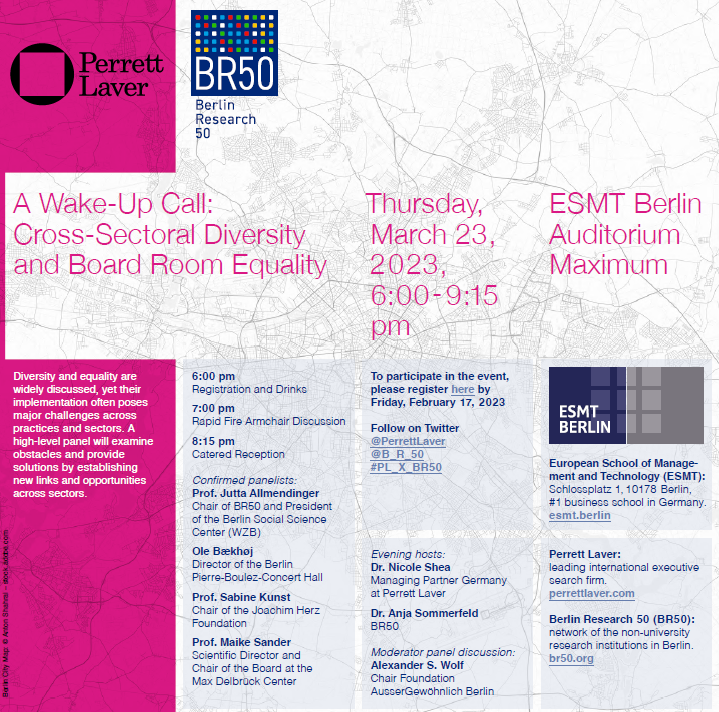
In Berlin, there will be greater diversity in leadership in the future. This, at least, is what is envisaged by the planned long-term collaboration between the international executive search firm Perrett Laver and Berlin Research 50 (BR50), a network of Berlin’s non-university research institutions. The partnership focuses not only on innovative networking and information events, but also on mentoring programs to point out the multitude of academic and non-academic career options to aspiring female talents and to help them (re)shape their career paths. The collaboration was launched with a panel discussion and the announcement of the first round of the mentoring program on March 23, 2023, at the European School of Management and Technology (ESMT) in Berlin.
The event entitled “A Wake-Up Call: Cross-Sectoral Diversity and Board Room Equality” provided a reminder of the need for more diversity. After a welcome address by ESMT President Professor Jörg Rocholl, the evening organizers Dr. Nicole Shea (Perrett Laver) and Dr. Anja Sommerfeld (BR50) outlined the cross-sectoral approaches adopted by their institutions. By engaging in mentoring and sustainable (academic) collaborations, both Perrett Laver and the BR50 have been keen to contribute to a more diverse leadership culture. Given the multiple perspectives offered by such a culture, key future challenges can be mastered more effectively. Diversity in leadership is not limited to gender, age, and background, but also extends to the professional background of leaders.
During the pilot phase of the mentoring program, developed by Shea and Sommerfeld together with a task force, experienced and aspiring female scientists and science managers will be supported on their career paths. Besides learning about careers within the participants’ own sectors, the women will also have the opportunity to participate in specific workshops, training sessions, and mentorships to explore options in other areas, such as the science-related sector, the private economy, and in public service. Bringing together women from different professional groups and backgrounds will enable them to broaden their horizons.
The highlight of the event was the distinguished panel discussion with Professor Jutta Allmendinger, President of WZB Berlin Social Science Center and Chair of BR50, Ole Bækhøj, Director of the Pierre Boulez Saal, Professor Sabine Kunst, Chair of the Joachim Herz Foundation and former President of Humboldt-Universität zu Berlin, Professor Maike Sander, Scientific Director of the Max Delbrück Center, and host Alexander S. Wolf, founder of the Foundation AusserGewöhnlich Berlin. Drawing on personal experience, the panel urged institutions to take their time in the recruitment process to invite not only the initially most promising candidates, but a larger and consequently more diverse pool. They also called for the regular evaluation and transparency of salaries and their distribution, as well as the creation of networks and targeted mentorships. The general belief was that changes in culture and systems were key to realizing equal and shared leadership positions. It is a matter of sharing responsibilities and workload, and of striking a healthy work-life balance. In that case nothing would stand in the way of diversity in leadership positions.
Text: Dr. Anja Sommerfeld and Dr. Nicole Shea
Translation: Teresa Gehrs
Article published at FVB: https://www.fv-berlin.de/en/info-for/the-media-and-public/news/new-mentoring-program-for-female-leaders-for-greater-diversity-in-leadership-1
See impressions of the event at: https://www.youtube.com/watch?v=K0zrexOWJtM


